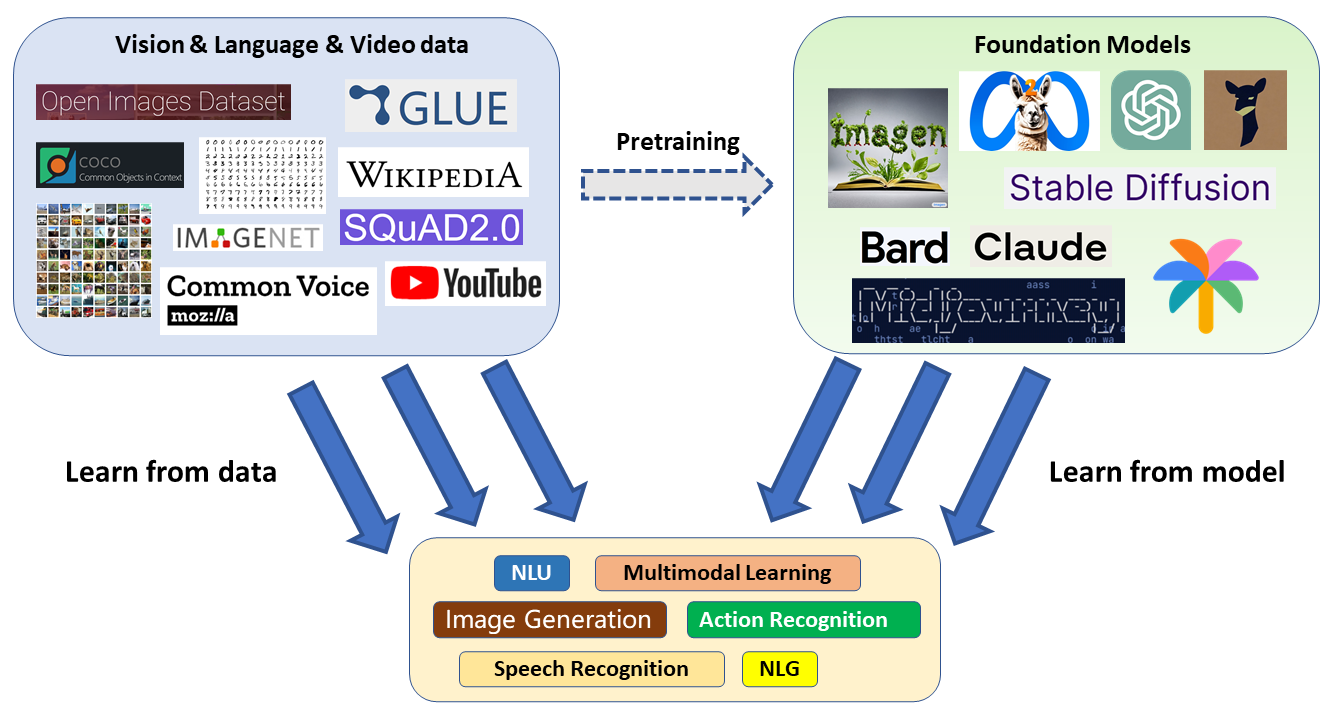Learn From Model Beyond Fine-Tuning: A Survey
Foundation models (FM) have demonstrated remarkable performance across a wide range of tasks (especially in the fields of natural language processing and computer vision), primarily attributed to their ability to comprehend instructions and access extensive, high-quality data. This not only showcases their current effectiveness but also sets a promising trajectory towards the development of artificial general intelligence. Unfortunately, due to multiple constraints, the raw data of the model used for large model training are often inaccessible, so the use of end-to-end models for downstream tasks has become a new research trend, which we call Learn From Model (LFM) in this article. LFM focuses on the research, modification, and design of FM based on the model interface, so as to better understand the model structure and weights (in a black box environment), and to generalize the model to downstream tasks. The study of LFM techniques can be broadly categorized into five major areas: model tuning, model distillation, model reuse, meta learning and model editing. Each category encompasses a repertoire of methods and strategies that aim to enhance the capabilities and performance of FM. This paper gives a comprehensive review of the current methods based on FM from the perspective of LFM, in order to help readers better understand the current research status and ideas. To conclude, we summarize the survey by highlighting several critical areas for future exploration and addressing open issues that require further attention from the research community. The relevant papers we investigated in this article can be accessed at <https://github.com/ruthless-man/Awesome-Learn-from-Model>.
PDF Abstract

